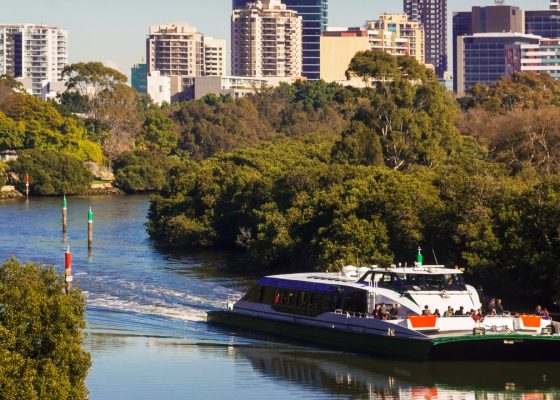The NSW health minister wants ‘fantastic solutions’ to ‘wicked problems’ and he called on the federal government to help free ‘trapped patients’ in hospitals.
In an “extremely challenged and stretched system”, it’s time to band together to find “fantastic solutions” to “wicked problems”, NSW health minister Ryan Park told delegates at the 2024 Greater Western Sydney Future Health Forum in Penrith today.
“Over the last few months, as we’ve moved through the winter, there have been multiple days where [the NSW health] system has had close to 10,000 people accessing our emergency departments in a single day,” he told delegates.
“That is significant demand.
“And when you have a look at the hospitals … like Campbelltown and Liverpool, they are arguably the busiest EDs in the country right now.
“The current model, the way in which we are delivering healthcare, is extremely challenged and stretched.”
Of the state government’s top health priorities – bolstering essential services, workforce retention, sustainable infrastructure, access, particularly regionally, and healthier communities – ED demand, unsurprisingly, was the “big issue”.
And aged care and NDIS challenges continue to be significant contributors, he added.
“Right now in NSW, there are two hospitals the size of the Prince of Wales full of people who are waiting longer than they should [to be discharged from hospital] because of NDIS and aged care challenges,” said Mr Park.
“That’s a fact.
“If you clog up one end of the pipeline, then trying to get through the front door is a challenge.
“[This is] a real challenge for those trying to manage acute beds, emergency department admissions and get people through our busy hospitals.
“It’s not a system that is sustainable, and I’ve made it very clear to the federal government that it is not a system that we can continue to operate with.”
But despite the evident challenges, there was palpable hope for new initiatives.
Mr Park announced the rollout of 86 hospital concierge service officers across the state.
These officers will take over much of the administrative work in coordinating discharge and patient flow.
“We know there is considerable administrative work that goes into discharge of a patient,” said Mr Park.
“When that’s done by clinicians or nurses … we’re taking them off the floor and it’s increasing the time in which people are staying within hospitals.
“They’re not getting access to acute care, they’re just waiting to be discharged and we need to do better.”
CEO of Nepean Blue Mountains LHD Lee Gregory said hospital concierge services in his district had been a “great success”.
“People often don’t have any information about what’s next but having those concierge services … waiting rooms are calmer.”
Mr Park also announced that the initial pilot of the $15 million budget initiative to update ambulance matrix systems would begin its rollout next month.
“It’s part of the rigorous, comprehensive testing we’re doing to ensure we get the system right and ready for rollout across the state by the back end of next year,” he said.
Currently, the ambulance matrix is almost 20 years old and relies on a limited set of static data inputs.
“NewGen Matrix will consider a number of factors, including a patient’s clinical condition and acuity, real-time ED activity, as well as relevant patient history and clinically appropriate alternatives to the ED,” said Mr Park.
“We’re using technology to try and make it easier for paramedics to make the best decisions for their patients, but also the best decision for how the system can help care for their patients.”
Mr Park called on all those in the room within the sector – public, private, not-for-profit – to work together to strengthen the system.
“Wicked problems lead to fantastic solutions,” he said.
“We don’t pretend to have every answer to the wicked problems, but in this room, there are potential answers to some of those problems.
“So, we say to all of you: stay engaged, give us some of your solutions, think outside the square.
“Given the pressure our EDs and hospitals staff are facing, they have a right to expect industry leaders, legislators, policymakers to be continually looking at ways in which we can deliver healthcare better for them, and, most importantly, better for patients.”
Mr Park said the state government was pursuing a “better deal” with the federal government through the partnership agreement.
“The Commonwealth government needs to look at this not as a two-tiered funded system, but as one system,” he said.
“I’m not asking Minister Butler to run our hospitals, I’m not asking him to run our EDs, I’m not asking him to employ our nurses.
“But equally, if we don’t have a primary healthcare system that’s working well, if we don’t have the availability of aged-care beds in communities, if we don’t have significant NDIS support, then we are left with a situation, as we do now, where we have an enormous number [of patients] … essentially trapped in hospitals across NSW, and that’s not fair on a frontline emergency staff.”



